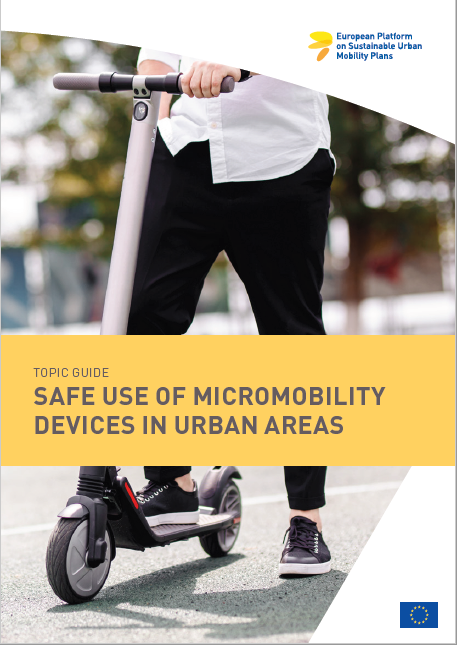Micromobility is changing how some people move around the city, bringing along new and urgent challenges such as operational issues relating to safety, use of public space, traffic management and others, for local and regional authorities, urban planners and national decision-makers. The deployment of shared e-scooter fleets may encourage city leaders and micromobility providers to work hand-in-hand to forge a way ahead that serves the public good, meets city goals such as a modal shift towards more sustainable modes of transport, and enables the private sector to create viable business models.
The first Policy Support Group of the CIVITAS ELEVATE Coordination and Support Action(link is external), with the involvement of 5 experts from selected organisations (TRL, ETSC, POLIS, the City of Paris and the City of Helsinki), the chair of the CIVITAS Policy Advisory Committee(link is external) (City of Antwerp), TRT (Trasporti e Territorio), BUAS (Breda University of Applied Sciences), and three observers from the cycling and e-sooters sectors, has prepared a SUMP Topic Guide focusing on micromobility in the SUMP planning and implementation process. An open call for feedback took place between 24 September and 29 October 2021, allowing stakeholders to also contribute to the Topic Guide.
The Topic Guide is part of a compendium of EU guidance documents, complementing the revised second edition of the SUMP Guidelines. It proposes best practice and key recommendations on the integration of micromobility in urban mobility planning, with the goal to support cities in achieving a safer use of micromobility devices in urban areas. It should also support the European Commission in delivering Action 22 of the Sustainable and Smart Mobility Strategy. It focuses on shared electrically powered personal mobility devices such as e-scooters and provides some guidance on how the users of these vehicles interact with the users of bicycles and electric power assisted cycles (EPACs), as well as pedestrians and other road users.
The Topic Guide also provides recommendations on integrating micromobility into the 'Vision Zero' approach to mobility and planning, which aims to eliminate all traffic fatalities and severe injuries, while increasing safe, healthy, equitable mobility for all. It highlights the need to urgently integrate e-scooters into cities’ Sustainable Urban Mobility Plans (SUMPs), but also into Vision Zero Safety Plans and other relevant ones such as urban development plans.
